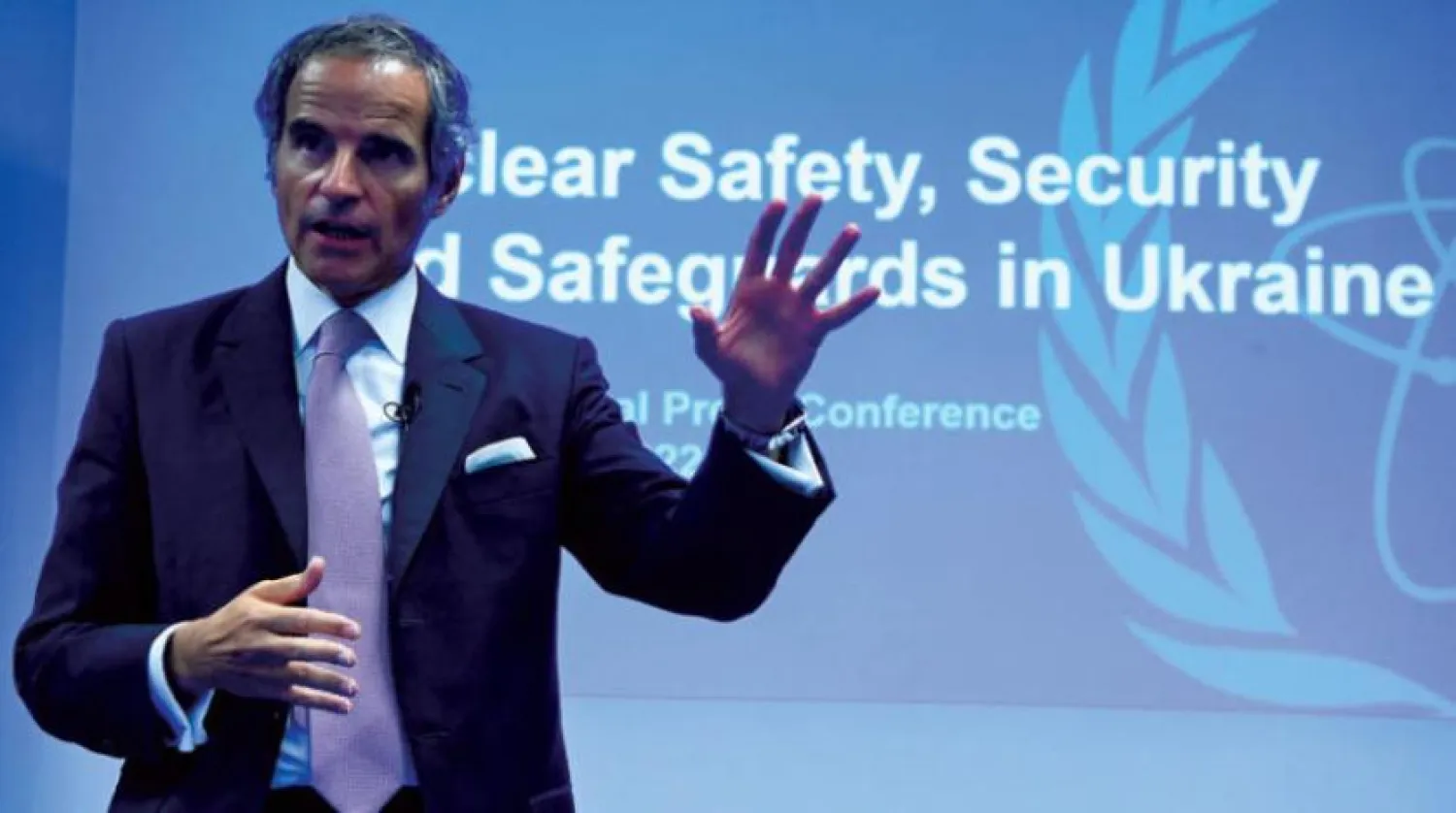The information gap in monitoring Iranian nuclear activities is getting bigger, warned Director-General of the International Atomic Energy Agency (IAEA) Rafael Grossi.
Speaking at a press conference on the sidelines of the quarterly meeting of the Agency's Board of Governors, Grossi said the Agency's verification and monitoring of Iran's nuclear-related commitments under the JCPOA had been seriously affected by Iran's decision to stop the implementation of those commitments, including its obligations under the Additional Protocol.
He called upon Iran to be more transparent after stopping the surveillance cameras.
Last June, Tehran shut down 27 IAEA cameras in its nuclear facilities, in addition to the cameras that have not handed over their recordings to the Agency since February last year.
"The Agency would need to apply additional safeguards measures, and Iran would need to provide comprehensive and accurate records to the Agency. We would also need to determine the comprehensiveness and accuracy of data recorded by our surveillance equipment between 21 February 2021 and 8 June 2022," he said.
Grossi admitted that considerable challenges would remain to confirm the consistency with the situation before Feb 21, 2021, of Iran's declared inventory of centrifuges and heavy water.
In his report to the IAEA Board of Governors, Grossi called on Iran to provide technically credible explanations for uranium particles of anthropogenic origin at three undeclared locations in Iran and informed the Agency of the current locations of the nuclear material and the contaminated equipment.
In the press conference, Grossi expressed his hope for Iran to cooperate promptly, adding: "the Agency remains ready to re-engage with Iran without delay to resolve these matters."
Grossi warned that the Agency would not be able to confirm the correctness and completeness of Iran's declarations under its Comprehensive Safeguards Agreement.
"Because it has not yet done so, the Agency is not in a position to provide assurance that Iran's nuclear program is exclusively peaceful."
Earlier, Iran announced it is ready to cooperate with the IAEA to eliminate any "misconceptions" about its activities after the Agency warned that it could no longer "guarantee" the peacefulness of Tehran's nuclear program.
Iranian Foreign Ministry spokesman Nasser Kanaani criticized the joint statement of Britain, France, and Germany, expressing "serious doubts" about Iran's seriousness in the nuclear deal negotiations.
Kanaani called the statement "unconstructive" and "in breach of goodwill," noting that both the US and Europe must prove they do not prioritize the interests of the Zionist regime when making political decisions.
"Iran announces its constructive cooperation with the Agency as its obligations," adding that "while Iran has obligations, it also has rights," AFP quoted Kanaani as saying.
The spokesman referred to the IAEA's meeting, saying no draft resolution against Iran was presented, warning that any non-constructive step, such as the one taken in June, will have repercussions.
"Naturally, Iran expects constructive actions from IAEA and the members of its governing board."
After 16 months of indirect talks between Tehran and Washington, European Union foreign policy chief Josep Borrell said on Aug 8 that the bloc had laid down a final offer to overcome an impasse for the revival of the agreement.
Earlier this month, Iran sent its latest response to the EU's proposed text.
On Friday, US Secretary of State Anthony Blinken said Iran's latest response to the nuclear deal proposal is a step "backward."
Blinken told reporters that what "we've seen over the last week or so in Iran's response to the proposal put forward by the European Union is a step backward and makes prospects for an agreement in the near-term, I would say, unlikely,"
Kanaani said that his country is "waiting for an official response from the US" and denied making any new demands in the last response to the European draft.
Kanani threw the ball into the US court, saying Washington must prove that it is a trusted member, adding that it must play a constructive role to reach an agreement and demonstrate its commitment to international norms.









